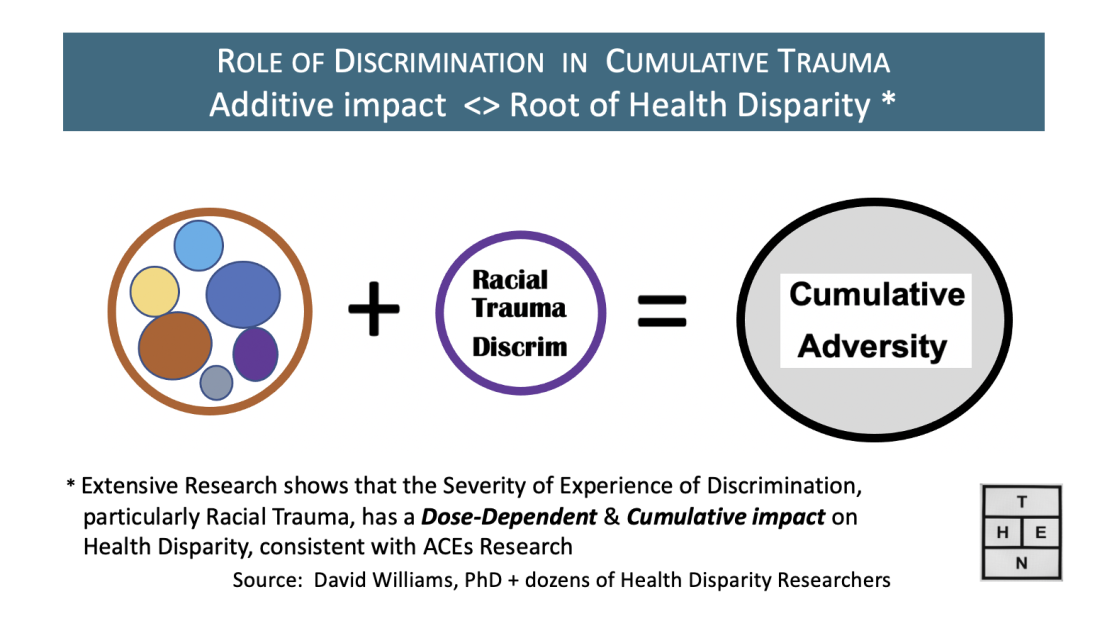Social Justice is a Health Necessity
SOCIAL JUSTICE - Re-examining and Transforming Medicine
THEN is committed to the re-examination and transformation of medical science, training and practice to make Health Equity and Social Justice a reality. SOCIAL JUSTICE is fair treatment of all people in a society, including fair access to wealth, opportunities and privileges among all members of a society.
Achieving Health Equity is best understood as SOCIAL JUSTICE.
It has long been recognized that the right to a long and healthy life requires:
o Fair treatment in all areas (an end to discrimination and victimization)
o Access to all basic needs (safety, housing, food, education, jobs)
o Access to all basic healthcare services, and
o Respectful, patient-centered care
From studying Trauma and its impact on Brain-Body Regulation, we can now ALSO SEE:
o The impact of the "social determinants of health" (such as poverty, housing and food insecurity, more)
o and very importantly, the impact of the Trauma of Discrimination
RESOURCES:
Braveman (2019). Swimming Against the Tide: Challenges in Pursuing Health Equity Today. Academic Medicine. Braveman calls upon academic medicine to make a commitment to addressing prevailing forces that exclude, marginalize and disadvantages groups of people based on gender identity, race, weath, amd abilities - and to act as a powerful force in resetting norms to create a world where everyone has a fair and just opportunity for health.
Bailey (2017) Structural racism and health inequities in the USA: evidence and interventions. Lancet. Despite growing understanding of how social factors drive health outcomes, many remain reluctant to identify racism as a root cause of racial health inequities. This report analyzes how mutually reinforcing systems foster racial discrimination in housing, education, employment, health care and criminal justice - and proposes how focus on structural racism could offer a concrete approach towards advancing health equity.
test


